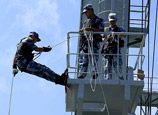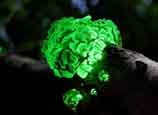
SHANGHAI, April 28 (Xinhua) -- The arrival of the H7N9 bird flu has affected China's tourism industry, with tourists shunning wetlands and farms while restaurants eliminate chicken and duck from their menus.
More than 120 human H7N9 infections, including 23 fatal cases, have been reported in China thus far, raising concerns about a possible lull in domestic tourism that occurred during the SARS epidemic a decade ago.
The three-day May Day holiday begins on April 29, with many urban Chinese travelling around the country for short trips.
Tour agencies in Shanghai said local "agritainment" farms have been hiding their fowl in order to quell concerns about the virus. H7N9 cases have been reported in the eastern city, as well as nearby provinces of Zhejiang, Jiangsu and Anhui that are favored by holiday makers in Shanghai.
"All free-ranging fowl have been penned," said Chen Zhennian, manager of a Shanghai-based tour agency. Tourists used to enjoy the sight of roaming birds in farm-style hotels but now fear their presence, he said.
Other farms have canceled activities that could expose tourists to live poultry, while rural restaurants have eliminated chicken and duck dishes, according to Chen.
H7N9 cannot be acquired by eating chicken or duck, as the virus is killed by high temperatures when the meat is cooked thoroughly.
According to a nationwide survey of tourist agencies conducted by Hongyuan Securities, group tour packages in east China that were hit hardest by the bird flu have not seen a drop in price, although wetland visits have been removed from the agencies' recommendation lists.
In Shanghai, where more than 30 H7N9 cases have been confirmed, train stations are gearing up for an influx of tourists and shopping malls have put up discount flyers to attract non-local shoppers.
Shanghai resident Xue Wei said the bird flu did not affect her family's plans to travel to south China's Hainan Province, a popular vacation destination.
"The only difference is that we will not eat the famous Hainan chicken rice this time," Xue said.
Business observers said that although the virus may deal a blow to agritainment farms and wetlands, its impact on general tourism will be limited.
Chen Yiting, a tour guide from the city of Nanjing in east China's Jiangsu Province, said tourists have spurned the city's famous salted duck.
"Their reaction is understandable and has not caused trouble for our business," Chen said. "This is very different from the SARS panic in 2003, when I guided almost no tourists for half a year."
Latest development of H7N9 in China[Special]
















 Children in quake-hit areas in Sichuan
Children in quake-hit areas in Sichuan


![]()
